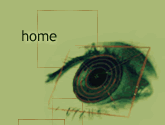|
|
|
|
|
|
|
|
|

|
|
||||||
|
|
|
||||||
|
|
|
|
|||||
|
|
|
||||||
|
|
|
||||||
|
|
|
||||||

|
|
||||||
|
|
|
||||||
|
|
|
||||||
|
|
|
||||||
|
|
|
|
|||||
|
|
|
|
|||||
|
|
|
|
|||||
|
|
|
|
|
||||
|
|
|
||||||

| Michael: Nowadays, with personal ads and internet matchmaking, it's pretty common for people to meet and get to know each other--even flirt--without seeing one another (though sometimes photos are exchanged in the computer personals). In a way, these technologies level the playing field for someone with vision impairment. I know people who claim to have fallen in love just through e-mail or the telephone. Have you had experience in that realm? |
| Joel: The Personals used to turn up inspiration, but not any more. The Matches Web site of the local alternative paper I'm partial to has gone from a simple text environment to a multimedia labyrinth that's nearly impossible to browse with a screen reader. I couldn't window shop and fantasize. So I settled for just placing my own ads. When I last tried this, promising phone conversations usually resulted in bad chemistry on a coffee date, and no connections. Strangely, considering my situation, I almost didn't care. Having a vague view of someone's form and clothing, and hearing her voice, wasn't enough to inspire much interest on my part even when we had some things in common. I needed to see unspoken recognitions in the lady's eyes, needed the sight of a cheek to want to touch, lips to want to kiss. It was just all too abstract. |
| Michael: That's terribly sad to hear, Joel. Because I know you are, at heart, both a romantic and an optimist. Do you see any possibility of a shift in your sensibilities such that you would not need the kinds of visual interplay you've always relied on to fall in love? I realize this would entail a profound change in the kinds of cues your heart responds to. |
|
Joel: I certainly hope so, although I'm not sure how the change will come. From Internet discussions with totally blind people, I have learned interesting but discouraging things about literally blind romance. They speak of the profound joy of finding connection, desire, and love without the mediation of sight, which many blindies proclaim prejudicially distorts and pollutes the "sightling's" perception of others. To me, this sounds more delusional than idealistic, a depressingly obvious and sophomoric rationalization of no possible use or comfort. While fully sighted, I never ignored rain-patter or the bouquet of a Bordeaux, never was unmindful of the physical caress of the world, or unappreciative of people's inner beauty. I think I need social opportunities allowing for more relaxed, gradual acquaintance, the slower accumulation of physical and personal impressions, the newly hesitant development of sightless trust and desire. Not to mention luck and electricity, as usual.
|
|
|
|
|
|
|
|
|

|
|

|

|

|
|
|
|
|
|
|||||
|
|
|